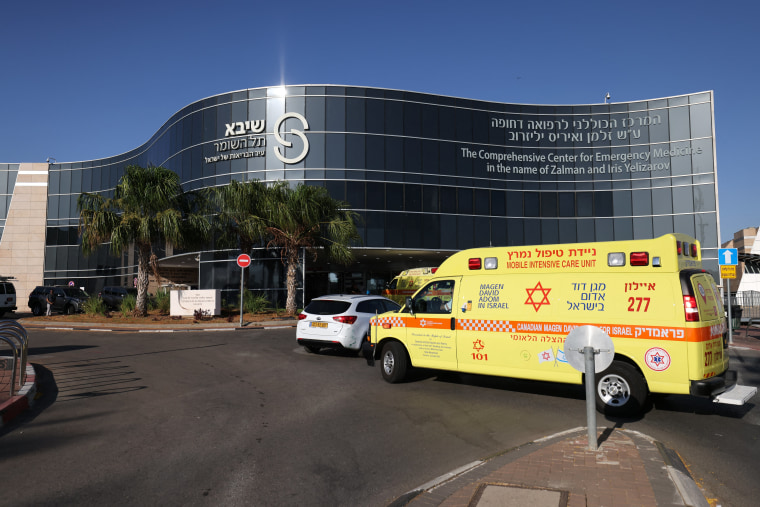TEL AVIV — Israel’s Prime Minister Benjamin Netanyahu was fitted with a heart monitor before he was discharged from the hospital Sunday following an overnight stay for dehydration, the director of the hospital's cardiology unit said.
“Our diagnosis, at the end of all the tests performed, including the laboratory tests, that the reason for the hospitalization was dehydration,” Dr. Amit Segev said in a video posted to Twitter by the Sheba Medical Center.
Netanyahu’s heart was “completely normal,” Segey said, adding that his medical team had conducted comprehensive examinations “including an electrical test of the heart.”
“At no point was any heart arrhythmia found,” he said, adding that the Israeli leader had been fitted with an implanted heart monitor so his data could be regularly analyzed.

Netanyahu was rushed to the medical center in Tel Aviv on Saturday after experiencing “mild dizziness,” his office said in a statement at the time.
In a video address later that evening Netanyahu blamed the hot weather for his spell of illness.
“Yesterday I spent time with my wife at the Sea of Galilee, in the sun, without a hat and water. Wasn’t a good idea,” he said. “I want to thank everyone for their concern. Thank God I feel good.”
Despite the prime minister's reported recovery, a scheduled weekly Cabinet meeting for Sunday was postponed to Monday.
Netanyahu was previously hospitalized in October after feeling ill during prayers on Yom Kippur, a day when observant Jews fast.
The Israeli leader is in one of the most difficult phases of his political career and faces pressure on several fronts. Demonstrations against his leadership and his proposed overhaul of the country’s judiciary entered their 28th week Saturday, and protest leaders promised further “days of disruption” ahead.
The protest movement includes many key institutions of Israeli civil society, including the national labor union, its medical association, military reservists, fighter pilots and business leaders.
The overhaul is supported by the hard-line, right-wing, religiously conservative factions of Netanyahu's coalition government. Their policies toward Palestinians and decisions to ramp up illegal settlement expansion in the occupied West Bank have also drawn international criticism and strained relations with the United States, Israel’s closest ally.
Netanyahu also faces a litany of corruption charges on bribery, fraud and breach of trust. The proposed judicial overhaul, which would limit the Israeli Supreme Court’s oversight of the government and ability to strike down decisions made by elected officials, could prove crucial to keeping Netanyahu out of jail, or seeing charges dropped altogether.
Netanyahu’s government approved a key portion of the overhaul last week, though the bill still needs to be approved in two more votes before it becomes law.
Paul Goldman reported from Tel Aviv and Leila Sackur from London.
